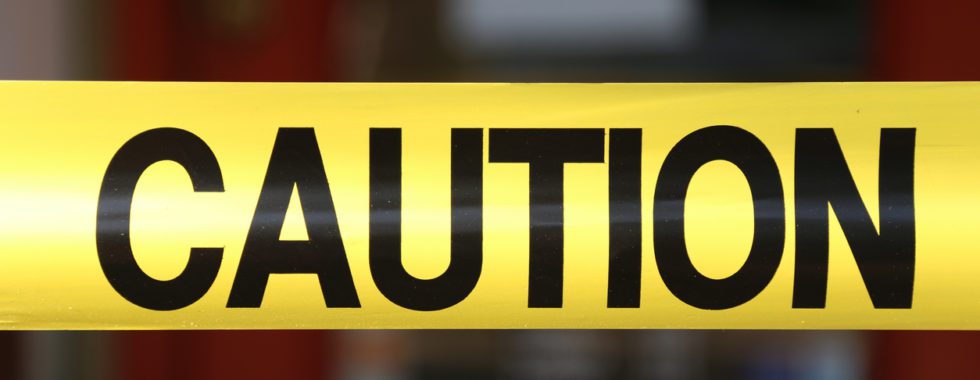
General Liability Exclusions | What You need to Know
Most contractors understand that in many states there are specific licensing requirements that must be fulfilled to get that coveted license that will allow you to compete legally in your specific industry.
One of those requirements is generally going to be General Liability (GL) insurance. This coverage is required not to protect you and your business, but to protect your customers when something goes wrong at the job site. And believe this, things will go wrong.
We typically think of general liability as the foundation policy in a suite of coverages because it pays in the event of bodily injury and property damage claims filed by a third-party. It also takes care of defense costs up to the policy’s limit. Some general liability policies have other coverages built into the policy, but all of them have exclusions where the policy will not respond. Here we’ll discuss general liability exclusions and how they can affect you and your contracting business. Believe it or not, you are not “fully insured.”
EXPECTED OR INTENDED
This means that any event that is expected to happen or intentionally happens, your policy will not respond to the claim. For example, one of your employees gets into a heated argument with a customer and decides to punch the customer. That is an intentional act, and therefore your GL will not pay.
CONTRACTUAL LIABILITY
Your GL policy will not provide coverage if you are held liable for damages by virtue of assuming the liability of another in a contract or agreement. For example, if you agreed to assume the liability of a railroad in a construction agreement with the railroad, your obligation to indemnify the railroad for the railroad’s liability to others is not covered.
LIQUOR LIABILITY
If your company is in the business of making, selling, serving, or furnishing alcohol to the public, you GL policy excludes your liability that could result from a bodily injury or property damage claim result from the alcohol. (the coverage is available through endorsement)
WORKERS COMPENSATION
Statutory workers’ comp benefits are never available in your GL policy. The rule of thumb for insurance policies is that one policy will not provide benefits that are provided by another policy.
EMPLOYERS LIABILITY
If an employee is injured while working for your business, any suit filed against you by the employee or the employee’s family is not covered under the GL policy.
POLLUTION
Pollution claims that result from a release or discharge of pollutants from insured premises is not covered. For example, if you have a storage tank in your shop for hazardous waste, and because of a rupture, hazardous chemicals are leaked onto the area surrounding your business, a claim for pollution will not be covered. The exclusion will apply to both bodily injury and property damage claims.
MOBILE EQUIPMENT
Although mobile equipment being used at the job site is covered under your GL policy, there is no coverage provided while it’s being transported to the job site. For example, one of your employees is transporting a backhoe to the job site on a trailer being pulled by a company truck. If the backhoe breaks loose from the trailer and causes bodily injury or property damage to a third party, your GL policy will not respond.
Actually, there are several other scenarios that would be excluded from your general liability coverage, but we have listed the scenarios that are most likely to happen to a construction contractor. Also in many cases, the coverage can be endorsed on the GL rather than requiring your business to purchase an additional policy.
With one phone call, you can make certain that your insurance package can mitigate everyday risks that all contractors face each and every day.
Here is What We Recommend
General Liability: Contractors General Liability will be the foundation of protection for your business. The coverage will respond if you or your employees are found liable for bodily injury, property damage, or have a products/completed operations complaint. The coverage also covers defense costs for your business to respond to any lawsuits brought by a third party.
Workers’ Comp: Many states will require contractors to provide workers’ compensation coverage for their workers before they can begin a project. Accidents will happen at the job site that can result in an employee becoming injured and missing work. Your workers’ compensation coverage will provide financial assistance for medical expenses and lost wages.
Surety Bonds: It’s very likely that your state will require you to be licensed before you can begin operations. Most states and customers will require contractors to offer a license or surety bond before you are allowed to bid on a job or begin working.
Commercial Auto: Typically, most contractors will have light and heavy vehicles that require commercial auto insurance to make certain their vehicles can be repaired or replaced in the event of an accident, vandalism, or theft.
Tool Coverage: Also known as Inland Marine Insurance, this policy will provide for reimbursement for expenses to repair or replace tools and equipment. Your tools represent an important part of your livelihood, so we always encourage carpentry contractors to consider this valuable coverage.
Get A Quote
For more information about contractors general liability coverage and exclusions, call the professionals at Fairbanks Insurance Brokers at (949) 595-0284 during normal business hours, or you can contact us through our website at your convenience.

